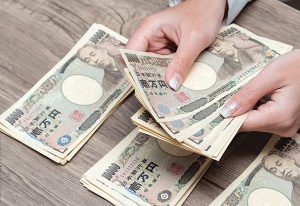Bloomberg
The yen extended its longest-losing streak in at least half a century as traders ignored government warnings about the speed of the currency’s decline, focusing instead on the widening gap between Japanese and US interest rates.
Japan’s currency slid for a 13th day against the dollar, the longest run of losses in Bloomberg data starting in 1971, after Federal Reserve Bank of St. Louis President James Bullard said US interest rate increases of 75 basis points are an option.
The 1% drop on Tuesday came even after Japan’s Finance Minister Shunichi Suzuki stepped up verbal defense of the currency, with traders looking for more concrete signs of intervention. Selling the yen has become a favourite trade, with asset managers placing record short bets, as the dovish Bank of Japan keeps policy rates anchored to the floor while the Federal Reserve hikes.
“Unless Japan’s policy — monetary policy and policy related to currency — is realigned, verbal or physical interventions won’t be effective,†said Yuji Kameoka, chief FX strategist at Daiwa Asset Management in Tokyo.
The yen dropped to a low of 128.31 per dollar, the weakest level since May 2002. The currency has now slumped 5% since its current run of losses began on April 1. The emerging consensus among traders in Tokyo is that it will reach 130 against the dollar in coming months.
“We are monitoring moves in the foreign exchange market with a strong sense of vigilance,†Suzuki said on Tuesday. Bank of Japan Governor Haruhiko Kuroda on Monday also ramped up his warnings on sharp yen moves while sticking with his commitment to keep stimulating a fragile economy.
Japan last intervened to sell dollars and buy yen in June 1998 at the height of the Asian currency crisis. Japan has traditionally intervened to weaken the yen as a huge current account surplus exerted upward pressure on the yen. Japan has not stepped into markets since November 2011.
“Until the BOJ changes its ultra-dovish stance, the monetary policy divergence argues for continued yen weakness and intervention would likely have little lasting impact.†said Win Thin, global head of currency strategy at Brown Brothers Harriman & Co.
BOJ Governor Kuroda is facing a balancing act as he tries to ensure that cracks don’t emerge between the government and the central bank on the need to continue with monetary stimulus. While a weak yen is a positive for the economy, a rapid drop can disrupt corporate planning and bears close watching, he said.
Asset managers boosted bearish wagers to a record last week, while leveraged fund net-short positions were just off the highest in more than three years, data from the Commodity Futures Trading Commission show.
“For the market, what would have the most impact is the BOJ raising rates, but to get there we still have a long way to go,†said economist Takeshi Minami at Norinchukin Research Institute. “The finance ministry is so far showing it isn’t going to actually intervene, so the market is likely thinking nothing’s going to be done and are moving accordingly.â€
Suzuki heads to Washington D.C. later Tuesday to attend Group of Seven and Group of 20 meetings in the U.S. and is also looking to hold bilateral meetings. Should he meet his U.S. counterpart, Janet Yellen, their remarks will be closely watched for further clues on Japan’s intentions.
 The Gulf Time Newspaper One of the finest business newspapers in the UAE brought to you by our professional writers and editors.
The Gulf Time Newspaper One of the finest business newspapers in the UAE brought to you by our professional writers and editors.
